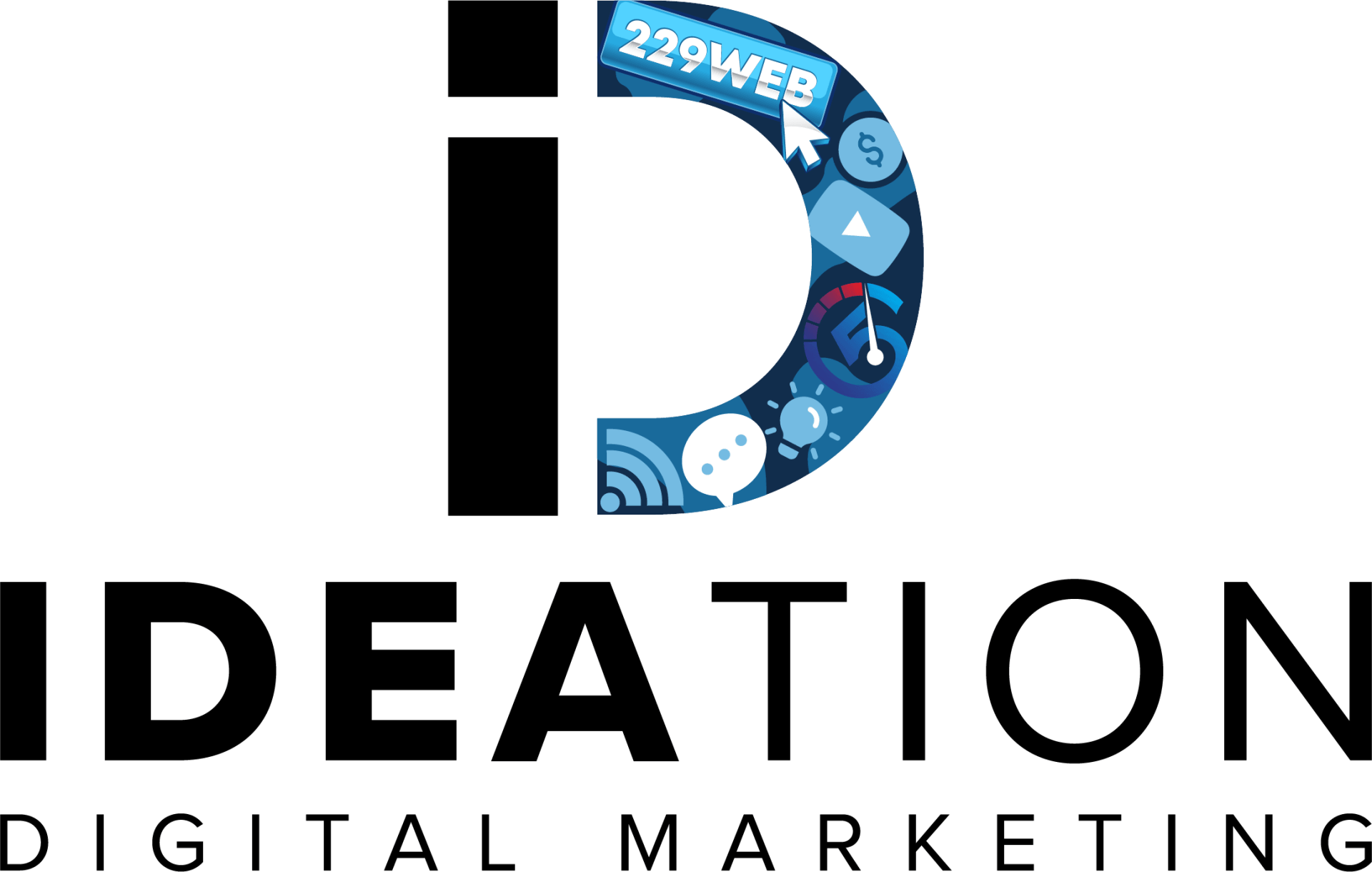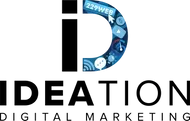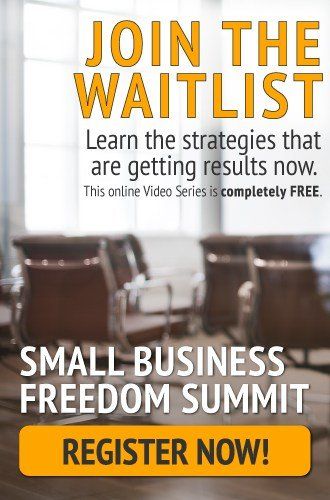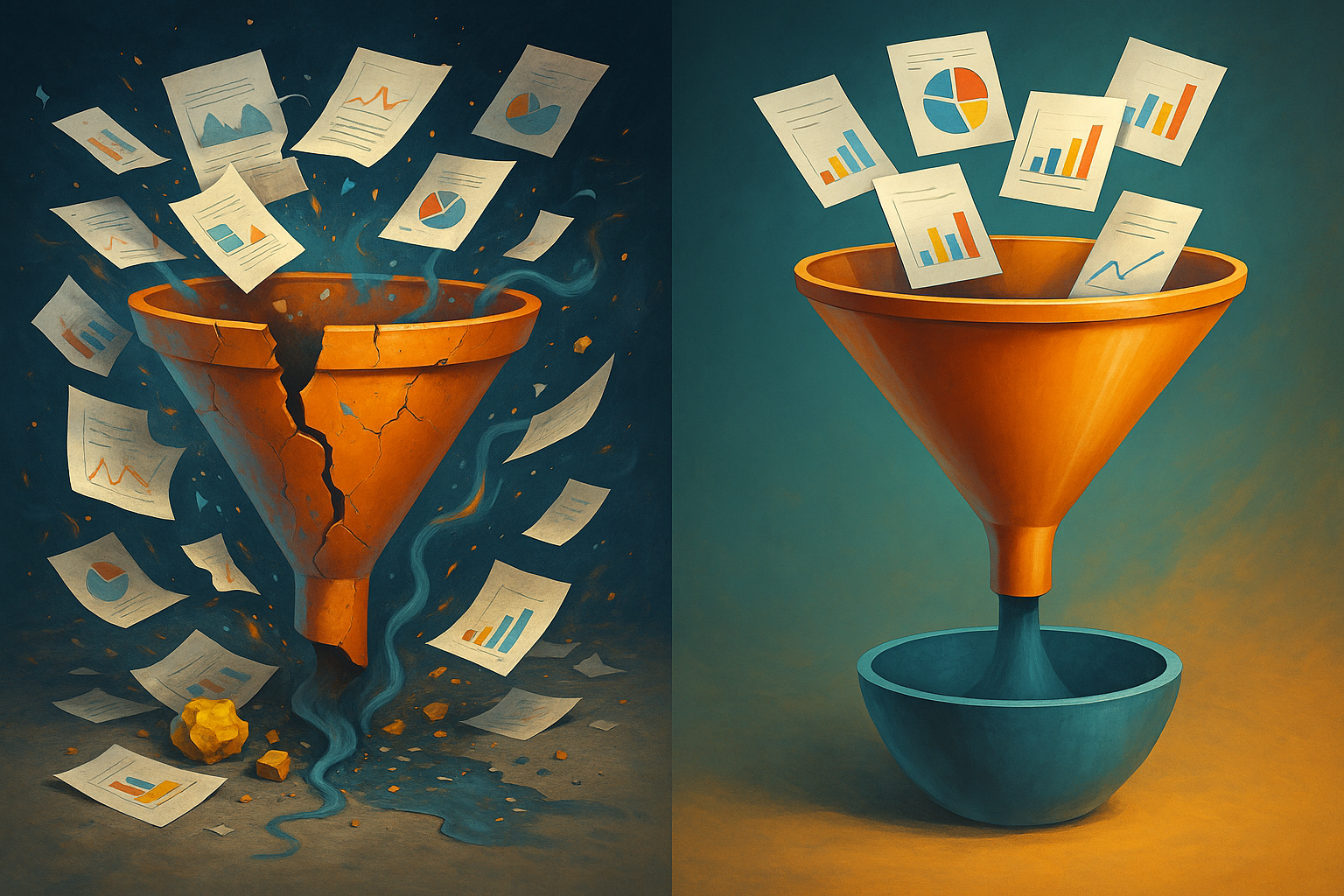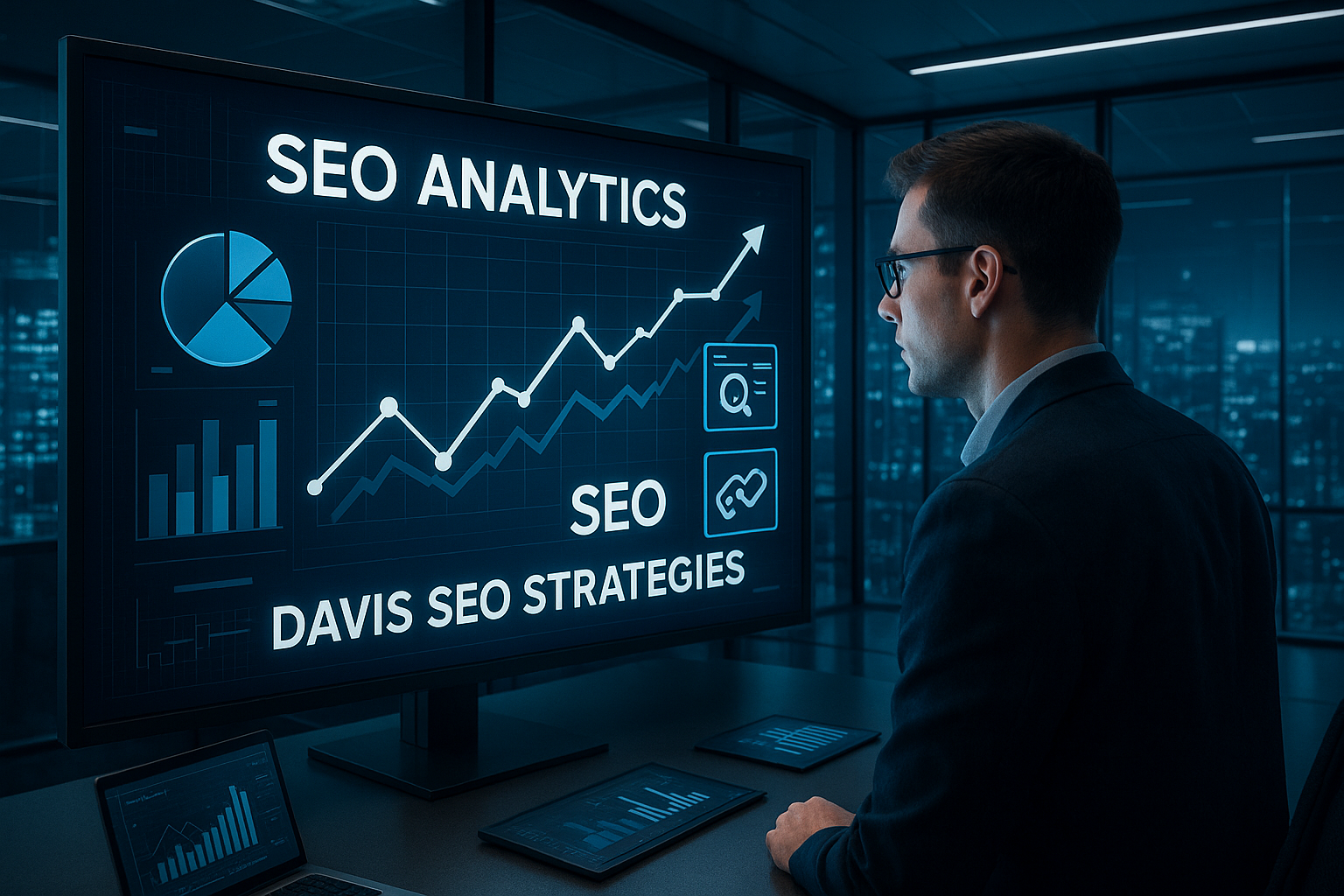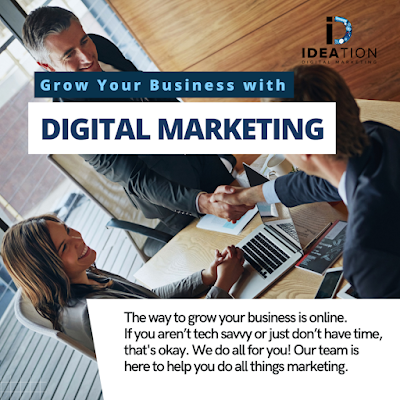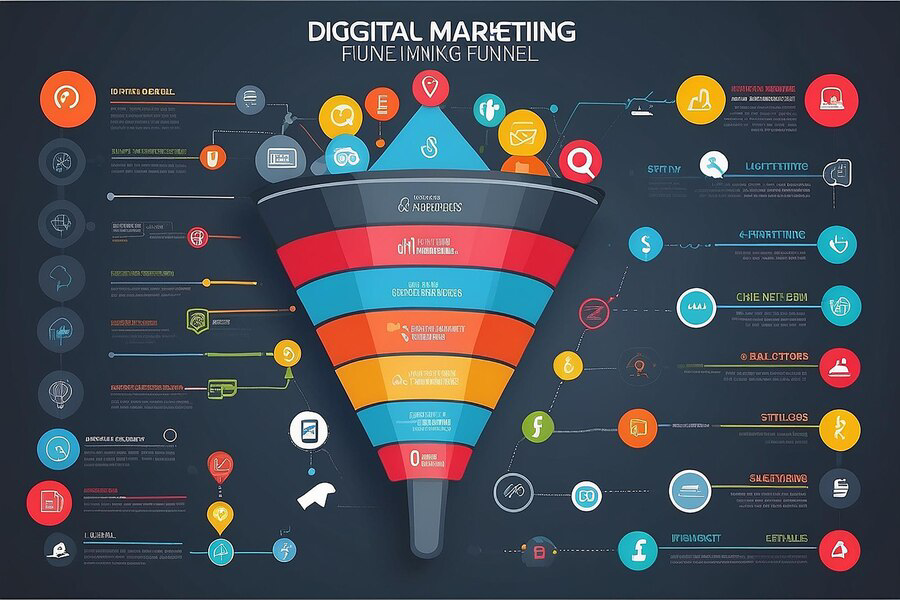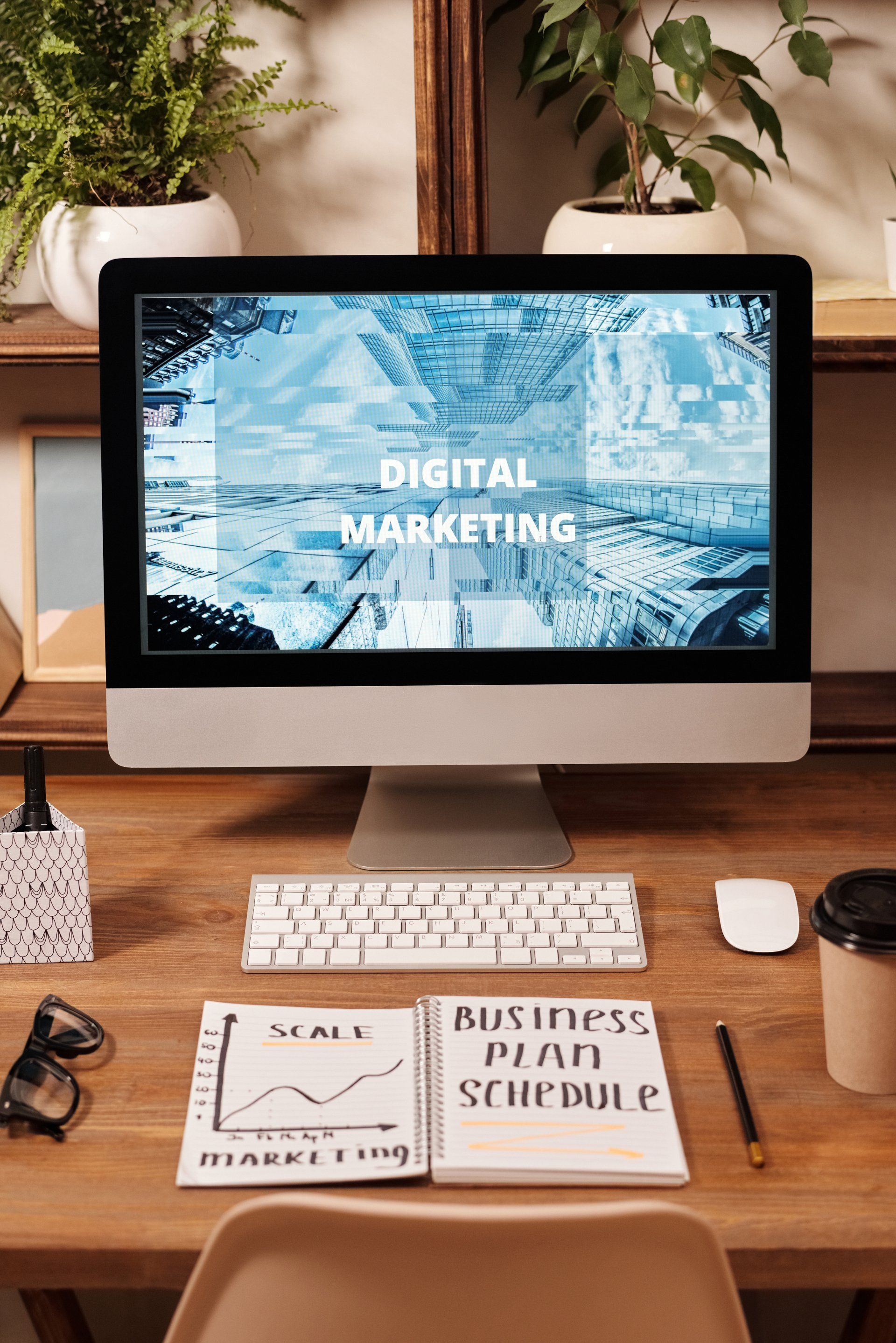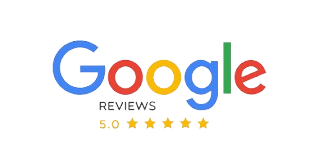Small Business Freedom Summit: Pam Slim and Sean Hyde
Sean: Okay, thank you for joining us today at the summit. We really appreciate you taking time to share your expertise with all of our viewers. For anyone that's not familiar with you in your work, would you like to take a minute just to introduce yourself and tell everyone what you're specializing in and what you've been doing?
Pamela: Sure my name is Pamela Slim and I am in Mesa Arizona and I have a small business incubator right on Main Street in Mesa, which is a lot of fun. We opened up in September. I'm an author, a speaker, and a business coach. My main area of interest is really helping to build the capacity of small business owners and those who serve the small business market, so people like myself who are business coaches organizations that serve the small business market and brands who have small business owners as customers.
Sean: Perfect! I know one of the areas you focus on is the community, and building a community around you, and one question I find that comes up and something I ran into with my first business. Small business owners, especially if it's their first business and the people in their close network and family aren't investors, aren't business owners, they don't sometimes get the support they need. Sometimes you know there's too much worry about the risk and the time involvement so if you're a small business owner in that kind of a situation how do you go about finding that community of other business owners or like-minded people that when you're having that bad day you can go to and say "hey I'm having this problem", and not worry about your family freaking out, that already doesn't approve, or you know, find people to bounce ideas off of?
Pamela: Very much. So yeah, I know in Escape From Cubicle Nation, that was my first book, I did a whole chapter around family and friends and how you break into the conversation of looking at specific dynamics because what our family and friends want to do is they want to support us and they want to keep us safe, and very often not for everybody but for some people when you're setting off to leave your safe corporate job and do something insane like start a business and take on all kinds of risk they feel like they're doing you a service to say "what are you doing?" "don't do it, it's really scary!". So I think the first principle to think about in community building is that it is across the spectrum. So this the same when you are trying to find ideal customers, which is a very important part of setting out on your own, as it is when you're trying to find what I call peer mentors, people who might be collaborative, who are on the same journey as you are. If you're trying to find investors, if you're trying to find partners, the principle is the same and that is that the first piece is really identifying who it is that you're excited about serving in your business.
So really who's the ideal customer? As we know you can have a few different profiles, you could have different customer segments, types of customers, you know different problems that you solve. What you want to look at when you define that is, what is that natural ecosystem around your ideal customer? So where are they going to get information, resources, support for the problem that you're helping them to solve? And you know when you have a professional services business it's easier sometimes to think about a problem to be solved. You know like when you're in a financial conundrum and you need a financial planner, or you don't know what you want to do with your life and you need a career coach right? You know your business is not doing well and you need somebody to help with marketing but even if you have a product that you're selling, you know a physical product it is meeting a particular need or a challenge. Maybe you have a beautiful candle that you know people need in order to have a wonderful scent in their home or something.
So as you start to look at what is that ecosystem that surrounds that person, who are they paying attention to? Who are experts they're listening to? What kind of events or conferences are they attending? What products do they use? What technology do they use? What are maybe the government or nonprofit organizations they might go to for support? Things that we're familiar with like the Small Business Development Corporation or Small Business Association or SCORE? Or are there a lot of local organizations? You know here in Mesa, I've been here since September, I've met so many people from the Arts Center that we have who are doing work in support of small business owners. So as you begin to identify these things, there's this natural ecosystem that already surrounds your ideal customer. And my main premise is, for you to get the support you need, ultimately to deliver the service and solve people who you care solve why not put your energy into building that community right? You can you can get peers and colleagues that share a similar passion for helping those people solve their problem and it's a very big world. Everybody has a specific role to play, so even though somebody could look like a direct competitor, as you dig into it usually you provide kind of a unique, you know, a unique lens into it. So within the ecosystem, then you start to identify what I call watering holes which are places in-person or online, that have large numbers of ideal customers, peers, partners, prospects. So that could look like where you guys located where's your what city are you in are you in?
Sean: Charleston West Virginia.
Pamela: How lovely, so I imagine in Charleston that there might be places where business owners congregate everything from the Chamber of Commerce to you go to meetup.com and you might look for you know entrepreneur groups you might participate in online communities which is one of the ways I know a lot of people found me in the early years everything was online from my virtual coaching business and through time and kind of practice and participating in these communities you start to notice the ones that are really high leverage for you. And it really is that one-to-many because when you start, it's like you calling out for help, like "where are you friends!?!" you know "where are you customers!?!". It's very lonely, and people can come one at a time which could not be the pace that we want. Whereas, when you look at it from, you know, what's the natural ecosystem already around people? Where are they already going? And where are these watering holes where it's one-to-many and a much quicker way to reach all the people who you want to reach?
Sean: Ok, so let me ask you a question, because it sounds like you're building a customer avatar or figuring out where they're hanging out or who they're connecting with or who they're reading, and it sounds like a lot of people you're talking about connecting with will also be potential strategic partners or strategic partnerships, how do we differentiate between someone that we can call up and say "hey I'm having this problem with a client or a vendor and I'm really stressed out", and a strategic partner? Or are they the same people? And is there a way to draw that line between a business partner and a confidante essentially, if we need both in certain situations?
Pamela: I think people, certain people, can fulfill different roles. But they require a different foundation of values and sometimes a different skillset, and then a different business aptitude in the strategic business focus. So when you look at, to me, somebody who would be an ideal type of, call it a peer mentor right, somebody who's a confidant or you can go to in order to cry safely to when inevitable challenges happen, we've all been there, somebody from my estimation needs to be compassionate they need to be honest and direct so that they can provide positive feedback. It's really helpful if they can provide feedback in a way that's actually helpful, which is not saying "oh my god you're an idiot why did you do that??" That's usually not very helpful. But can instead say, "I noticed that the last five times that you went out to a sales call on the way when you were talking to me on the phone you kept saying oh my god I'm going to blow it I'm going to blow it I'm going to blow it", "might your thoughts be something that's contributing to your lack of effective closure of sales deals", or something. Right, so somebody who has a good perspective who's going to give it to you straight but who has empathy and compassion, and to me, it's also somebody who is willing to do the work themselves. So you're helping them, there's reciprocity where when you're crying on their shoulder, they're crying on your shoulder and you and they also have a value set that says, as I say frequently, "We all need each other, we're here to be supporting each other", and not so much somebody who might say, and there's nothing wrong with it because we're all wired differently, but somebody who might say, "it's a shark tank out there I'm all in it for me it's really competitive I have to be really careful you know who I share information with". That's probably not going to be the best kind of person. Because their values they may hesitate to share different things, because of their worldview. So those are characteristics to me of somebody who could be an excellent confidant. That person could also inhabit the strategic business partner space which means they have, if you look at again, imagine this visual of the core challenge or problem that the person who you want to serve faces in order for them to solve it, they need a whole bunch of stuff, right? Like as wonderful as we think we are, whether it be business strategic, or a great logo, or funding, or whatever, like they need a whole bunch of stuff in order to solve their problem. So a strategic partner is essentially somebody has another puzzle piece. I had somebody I work with for years when I was doing all the escape from cubicle nation coaching, early stage entrepreneurs journey coaching, people leaving corporate jobs to start a business. What does everybody need? First, they need a basic website, something basic in WordPress that looks decent that doesn't cost a fortune, to begin to hang a shingle for their side hustle. So I had somebody who was in my community who was a great WordPress designer, reasonably priced, did the work great. I probably sent her 50 different leads. In that case, I just do it because I was super happy to do it, there wasn't like a financial renumeration but there could easily be. There's somebody who has a piece of the puzzle that is critical for the person who you're providing it to and by working together, you have higher leverage, that's where you really have that strategic advantage. I've had a lot of cases, I have a lot of colleagues, peers in mind, Charlie Gilkey and Jonathan fields and whole number of people, where we essentially, sometimes have directly competitive programs. We're both marketing saying retreats or online programs or whatever that are directly competitive. The way we see it, is we understand because we know each other so well, and we're good friends because we all have that other part. These are people who have both strategic and the compassion that we know where each other's strengths are. So I can be listening to a client and I'm like “What you kind of need some of Jonathan's like magic around copywriting and marketing because that's really his jam”. If you're looking more for strategic purpose and community building I know that's me. If you're looking at systems, and really understanding the operations your business you're probably better off with Charlie. So that way, even though you might have people who are competitors then you understand how each one if you really has a unique differentiation. So there can be people who have both, strategic fit and compassion, but they're not the same and you need to sort for and treat each one in a very distinct way, just because we maybe friends and really like each other and our kids play soccer together or we all like to go salsa dancing, which I do love to go salsa and my kid does play soccer. It does not mean that we would have a fantastic business relationship. We have to have very specific conversations about what you bring, what I bring, what our market needs, our values, our business practices in order to make it a beautiful thing.
Sean: I think that's perfect and actually that brings me to a question that I've always had, we read your ads and you built to sell a concept of a mentor that's way beyond you. It's always brought up but how to find one how to structure that agreement is almost never brought up. So see that's what we're looking for more that person that's already done the path that's already had the success it's way beyond us. Is there a technique for finding that and structuring that relationship so that it works for everybody?
Pamela: You know, I see it as, there's a philosophy about it and not so much a technique because it's a very organic thing, no matter what. So one of the philosophical components is that “you have to see it as being your equal, your just a less experienced equal” now everybody feels that way not every expert feels that way. So when you're finding your right person who's a mentor, fundamentally I think you both need to see it that way. Somebody will see potential in you, will consider it worthwhile in order to spend time and energy in working with you and you have great respect for that person and what they have achieved and yet you're not worshiping them. We're looking for them to take a magic wand and make you famous or make you successful.
I was at a panel years ago at South by Southwest that was blogged to book, so it was people like myself who had written blogs that turn into books. I had Guy Kawasaki who was on the panel as well who I affectionately call my link sugar daddy because he kind of broke my story on the internet if you will when I like on a whim one night shared a blogpost with him, called an open letter to CEOs that I you know I had a tiny audience and he liked it and he shared it on his blog the next day and it just like the skies opened. It was amazing and I appreciate him to this day, he ended up writing the foreword to my book he's just a totally wonderful person. He said somebody was asking him a very similar question and he said you know people often say that he said speaking for himself that I have the golden touch, you know that? The Midas touch, like what I touch turns to gold, he said actually I only touch gold. So his point is somebody is going to want to mentor you and I make this point in body of work in my own book based on what you have already created, not because all of a sudden they just going to make time in order to teach you everything that they know, and specifically when you look at somebody that you're choosing who you know because you've really studied their work and they've done amazing things and they're teaching certain principles and you know that you're living those principles, you're doing that work, you're shipping, you’re doing all that stuff, you are connecting with your own community and you're not coming at it from the position of you know being needy and wanting to be made to be ordained. It's a very touchy thing and to me that that approach that emotional approach it's almost like a spiritual approach like no matter whatever your spiritual foundation is, it's coming at it from this perspective of what really is your understanding about what this relationship is and it has to have reciprocity in it, so you always have to be answering what would the benefit be for somebody who does not have much time at all to be spending time with me and to me the best equation is because they get super excited by what it is that you're building that's highly in alignment with what they're doing and what they're building. I think that's one piece the other one is where it is very rarely, I see it more as a very organic process, where you just want to be asking for tiny little bits of time so you might spend. It's really creepy when you think about it because it sounds very much like stalking, but let's call it strategic marketing analysis, where you might always end up going to events where some of your heroes are speaking or attending and you pay attention to what they write, and you show up, and you're tweeting to them, and you're writing a comment on a blog, and you know people in comment and pretty soon they're like “Who is that person?” like you know that's kind of interesting you're everywhere which can be super creepy, so let's just acknowledge that.
Always wanting to do it with respect not in like I'm not worthy, and I'm just showing up to be a fan, and to not have any of my own pride over what I'm doing because you're all equal, but that you begin to show a presence and where you are, you are places where they are, and then you're also paying attention to what is important to them. Do they have a book coming out? That you could help spread the word. Do they have charity things they're working on? That you could be useful for. So those are ways I think that you can start to slowly build the relationship and just ask for tiny little bits of time. If somebody has five minutes that they have to share, respect that time, thank them, follow-up with a thank-you card, and then just let it kind of let it go, and let it be organic, and keep looking at it again, as if you're most likely the kind of mentor that you want to choose is somebody who is in your ecosystem. You're playing a role in serving the same kind of client so you're happy that they're there, they get to know you more, and they're happy that you're there, and you begin to just really do your work and then it becomes much more natural. I've seen approaches and things that like you said that might be like “Do we do a contract? Do we look at how many hours?” I don't think it's that way from mentoring, in that way depending on who the person is like sometimes that's why you pay them in order to get their expertise and that's a good way to do it and then sometimes those relationships can end up turning into more of a natural ongoing connection. Think about if anybody's come from corporate, anybody who's kind of been a mentor you mentor for you over your career, it's generally because you've been through the trenches together, you've done great work, you have their back and then that's where part of that that kind of connection and loyalty starts to develop.
Pamela: Well said in like three seconds as opposed to the 12 minutes that I took to get my explanation I'm going to drink some water after that long explanation.
Pamela: Yeah I think first: pay attention to who already is naturally doing it. You might want to put certain business processes in place where anytime somebody new comes in the door you have a general question you ask. You know, "how did you hear about me?" "is there a specific person who mentioned me or something?" so you can start to track and notice when people are referring others. And very often you'll probably get emails where somebody's like "oh you know so-and-so referred me to you and therefore I'm going to talk to you" so you can track that and make sure that's in your business operations. You can pay attention to it and maybe then have a little bit of data collection where you start to notice people who are doing that. You can have other things like Google Alerts, and begin to pay attention to who might be talking about you and sharing the message or retweeting what it is that you're sharing on Twitter or Facebook or Instagram or whatever.
It's usually not that hard, it's usually pretty obvious when you just begin to pay attention to what's happening on social channels. Who are people who naturally are spreading the word about what it is that you're doing? It's not surprising the people who tend to be the biggest fans and advocates are those who you have also really joyfully worked with and who you love to work with. You might notice as you're working with them that their orientation is more toward being a connector. If you guys read The Tipping Point or any of your viewers read that classic Malcolm Gladwell chapter in The Tipping Point about mavens and salesmen and connectors. Where people might be actually great fans of your work they may love the depth as mavens of what it is that you do but they're not necessarily going to share it. People who are salespeople can be excited about it and when prompted could make a really great pitch that gets people excited right, but connectors by their nature are people who have a big network who love to connect people with each other who are naturally going to do it whether you ask them or not. And so to me that's part of how it is that you can start to put certain identification practices in place if you have a professional service organization. You work with people, you really get to know them, and you can notice, you know, they might always be talking about others, or they might be the type of people who are always introducing you to other people. Those are some of the, you know, classic symptoms of having somebody who's a connector.
So usually there's enough that's happening where you can just begin to track and pay attention to who already are your biggest fans and advocates and putting in place things to be, you know, thanking them for that, encouraging reciprocating. One thing I find and because I'm a massive connector, that's the way I was wired, oh so excited to learn that it's actually a thing. Once I read tipping point and actually there's another great book a former client Erica Dhawan wrote a book called Get Big Things Done the power of connectional intelligence and so it takes connector and it like expands it on this really cool level of looking at different types of connectors, she argues which I think is a great argument that we have IQ, we have EQ, emotional intelligence and now we need connectional intelligence in today's world. So understanding different types of connectors which can be super helpful but doing things like mentioning other people that you work with. How many that was? because I just did that, notice that? It wasn't really to illustrate a point but like I can't help but do it because that's the way that when you're constantly promoting other people's work, when you get excited about what people are doing and you're sharing, it creates that feeling of reciprocity, it makes people want to share versus if you have more of an empire and all of your communication for your company is all about and then “We did this and then we're so cool and we won this award and we're so awesome.” it doesn't engender so much of a feeling of reciprocity. That's a judgment, that's my values, clearly it works for some people, truly it really does. Know who you are but if you really do like to have more of that shared success value you know where you want to have more of these partners as opposed to competitors because not everybody does and that's okay right there's a lot of super successful people out there that are just much more competitive and that's the way they see the world and that’s okay. When you start to talk about building a community, the one thing I'll say that's very common is people interchange like having a bunch of fans on Facebook or having a big email list with a community. Different things, a community is actually a group of people that are really you know connected by shared values and shared purpose with reciprocity and mutual benefit and mutual respect, not just a volume of people who think you're really cool.
Sean: Okay so I think we have time for one more question, I think that leads into it really well. In most communities there's almost unlimited opportunity to connect with people in real time, obviously the loaded amount of time. How do we decide where to put our energy between networking events, coaching, Little League, connecting with that, you know, again there are so many things. If we're a busy business owner and we have a limited amount of time, how do we decide where to focus, where to put that time and energy to make the most out of these connections in our community?
Pamela: So the first is if you do have like a specific business purpose where part of what you're trying to do is to, you know, build a community around surveying your core customer which really helps your business, then you want to have a clear sense for your ideal customers and there might be a number of different profiles. How do they communicate? What do they do? Are they just people who are totally, you know, working from home in their home office that never go out. Are they people who are constantly at conferences? Are they on LinkedIn? So you want to look at what are the communication and marketing vehicles that those people are using already and then within that when you're doing some of the testing and trying, you can go into an experiment, where you might go to a certain conference or you go to a meetup group. I love running experiments and challenges, it's my favorite thing so it makes it a little bit more fun as opposed to just thinking like “Oh yeah I went to ten events and like they were all awful on not finding out anything”. If you go in setting a hypothesis, so this month I have a hypothesis based on my research that this group I found in meetup, in this conference and this coffee shop in my local Main Street is a place that I'm going to meet ideal people and this is why I have a hypothesis and I'm going to go out and test it and really see. Do I feel like they're my people? Or there is it a, you know, interesting group, does it look like it's good or not and you can have those experiences and just track a little bit of notes. “Was it as I thought?” and if not “Why not?” so you're looking at it from a lens with a little bit more discipline and then from there you can start to notice where might be the best places to spend your time. So there's a period of just experimentation because you never know something can sound great it's kind of like you know it's been a long time since I've dated, thank God I love my husband, married a long time, but right remembering those days, it's like the difference between an online dating profile and meeting somebody in real life, sometimes radically different. Hopefully it's not too radical for those of you who are still dating, so you need to actually go in those environments and meet the people to really know if that's a good place for you to spend time or not so take a little bit of time dating and then you start to get your serious commitments and I like to zoom in where you're like “Okay I know that I'm going to two conferences a year and these are the ones because these are the places where I find all of my ideal folks” one of my dear friends here Susan buyer who does a lot of audience research she goes to like four conferences a year for digital marketing agencies that are that's her target client base and she gets all the work she needs all year by going to those four conferences that's everybody who needs her services is all there in one place but that's after doing a lot of experimentation and testing and trying.
Sean: I thought we met her because I got about six of those a year and we are a digital marketing agency so that's funny. Yeah, so it's more business. Well, I think we're pretty much out of time but thank you for everything. It was just great information.
Pamela: Thank you! Thanks for having me.
Sean: I mean even for me in particular you answered one of my question that was great like I got a lot of information so thank you very much. For anyone that's watching that wants to follow up with you, learn more about your programs, or how they can stay involved with you what's the best way for them to reach out?
Pamela: So you can go to Pamelaslim.com my main site and that's where all my social connections are. We have a contact page so anybody who wants to send an email, I'm totally happy to receive it and get back to you.
Sean: Perfect! Well, thank you very much for the great content and all the great information.
Pamela: Sounds awesome! I'm actually writing a book on this topic so you got me at a good time!
Sean: Okay well everyone can follow you and they can keep up with you that way so it'll be perfect.
Pamela:
Thank you guys!



